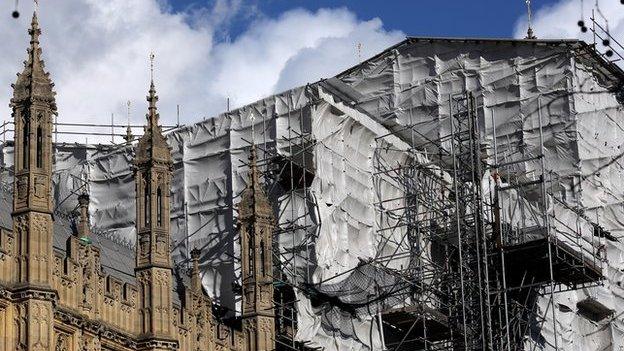Closing Parliament for repair work 'most efficient' option
- Published
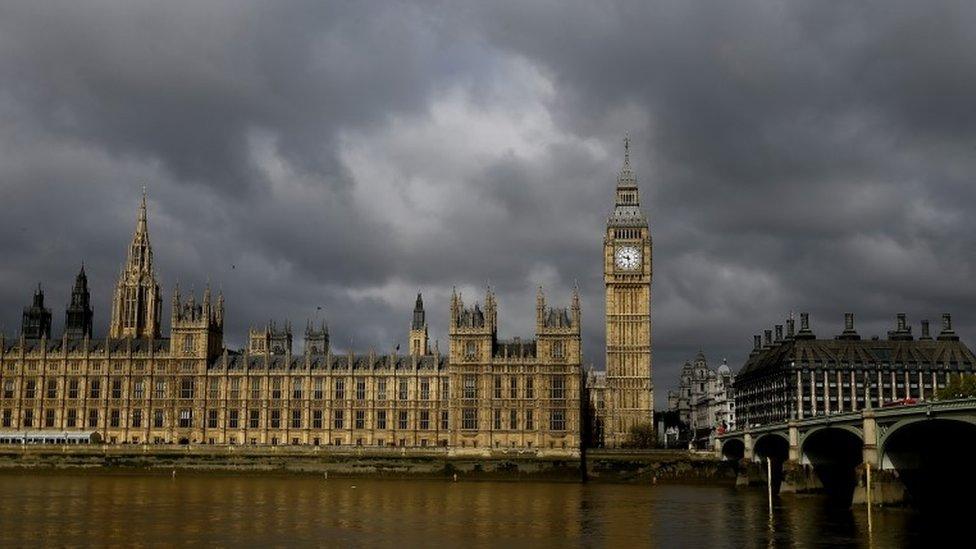
The majority of the Palace of Westminster was built in the mid-19th Century
Vacating the Palace of Westminster to carry out urgent restoration work is the most economic and efficient option, says Parliament's spending watchdog.
The World Heritage Site has asbestos, leaks, old electrics and is said to be at high risk of "catastrophic failure".
Further delaying a decision on a total overhaul may inflate costs by up to £85m a year, MPs said.
A business case could be made by 2019 but vacating the site was unlikely to take place before 2023, they were told.
Downing Street said it recognised the palace needed urgent attention, adding that it was a "national asset" and wanted to keep it that way. A spokesman said MPs will be given a chance to vote on the situation in the "not too distant future".
'Most effective'
Parts of the Grade I listed Palace of Westminster - most of which was built to replace the old palace, which burnt down in 1834 - are so riddled with asbestos, frail stonework and ageing wiring, it has been suggested it will have to be knocked down if it is not protected.
A previous report found that the risk of a "catastrophic failure" - caused by fire, leaks, sewage inundation, major electrical failure or another mechanical breakdown - was high and growing.
A senior parliamentary committee has already backed calls for it to be closed for six years for a £4bn restoration - suggesting MPs move into a temporary debating chamber in the Department of Health's headquarters while peers move to the nearby QEII conference centre.
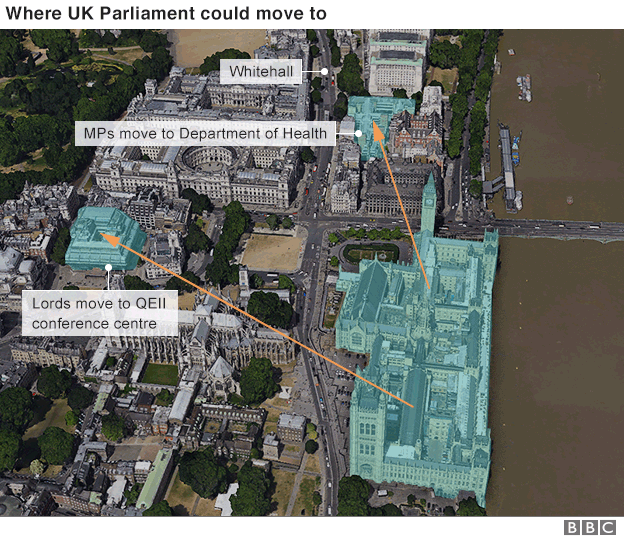
Other options previously examined include allowing work to be done over 32 years, while everyone remains in the building - or vacating first the Commons then the Lords.
But on Friday the Public Accounts Committee, which monitors spending, lent its backing to the calls - saying moving everyone out of the building while work was carried out on the iconic home of the "mother of all Parliaments" was the "most economic" and "the most effective choice".
Money 'wasted'
It said between £50m and £60m was already being spent on maintaining the building every year - and further delays may add up to £85m a year to the capital costs "in additional tender price inflation, based on current forecasts".
The committee heard that the mechanical and electrical systems should have been replaced in the 1980s - but this had not been considered a priority and more attention had been paid to "the internal appearance of the building".
Meg Hillier, who chairs the committee, said: "The longer the House of Commons spends mulling new or alternative options, the greater the chance that public money is wasted."
The committee recommended that a decision in principle to "pursue a full decant from the palace" be taken "swiftly" but added that a "comprehensive risk analysis" must be carried out before a final decision is made.
It also backed a "two-tier delivery authority" to oversee works - based on the examples of the Crossrail rail link and the 2012 London Olympics - and stressed the need for strong oversight throughout the project.
'Amazing opportunity'
Philip Boswell, an SNP MP, committee member and a former quantity surveyor, said stonework "is in poor repair", the drains are regularly blocked and the building is at risk of an electrical fire.
A planned departure would be the "cheapest, most effective option", he told the BBC's Victoria Derbyshire programme, adding that moving out as a result of an emergency would only increase costs further.
Dr Faiza Shaheem, from the Centre for Labour and Social Studies, described the situation as "an amazing opportunity" to take Parliament out of London and away from the south east of England at a time when people feel "politicians aren't speaking to them and thinking about them".
However, committee member Charlie Elphicke questioned whether, at a time that "momentous decisions" were being taken about the UK leaving the EU, saying in the report "are we going to do that from the mother of Parliaments or somewhere else - dare I say it - effectively giving orders from a Portakabin?"
But Commons clerk David Natzler told him: "You will still be here in three, four, five and possibly six years' time.
"So if we have a total decant, by the time it happens we will well and truly have left the European Union."
- Published8 September 2016
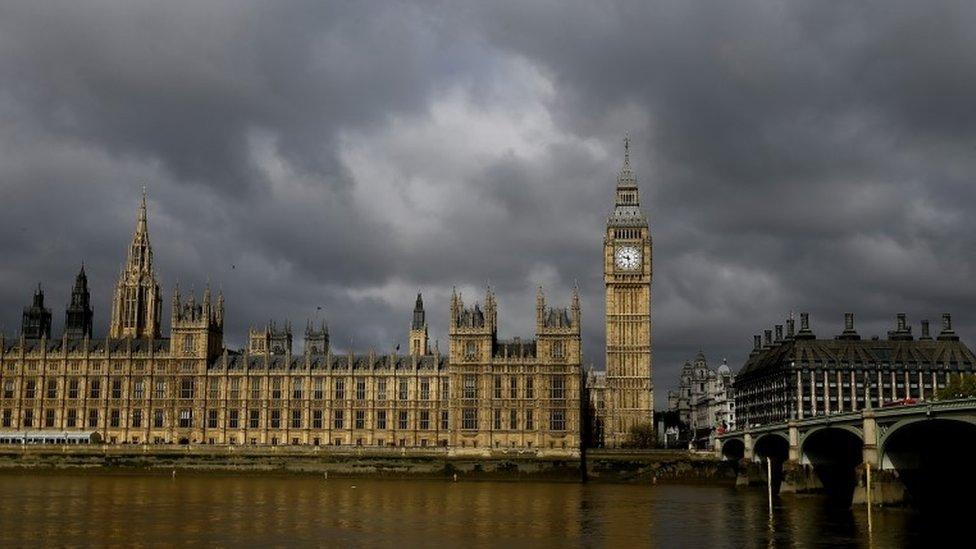
- Published8 September 2016
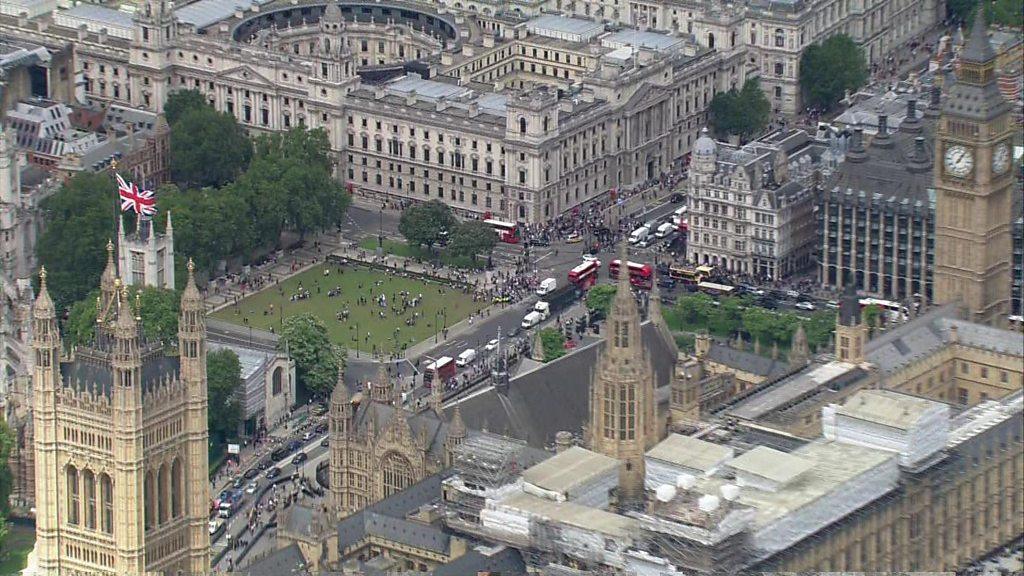
- Published18 June 2015
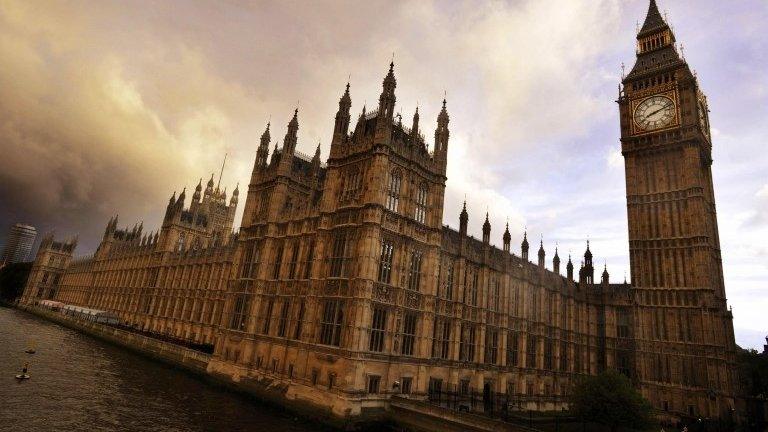
- Published18 June 2015
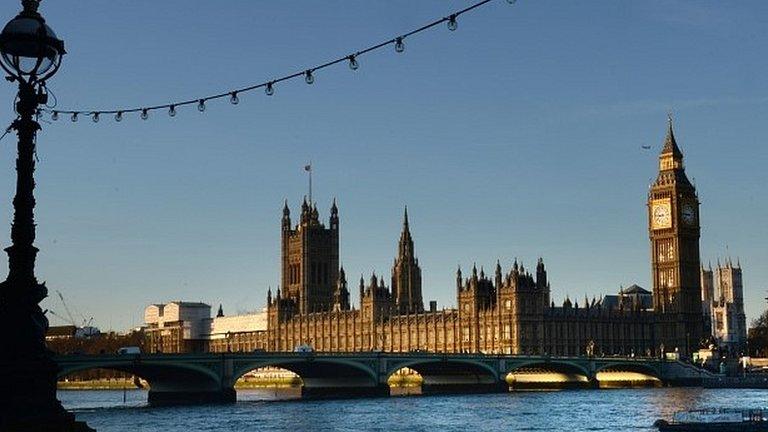
- Published18 June 2015
